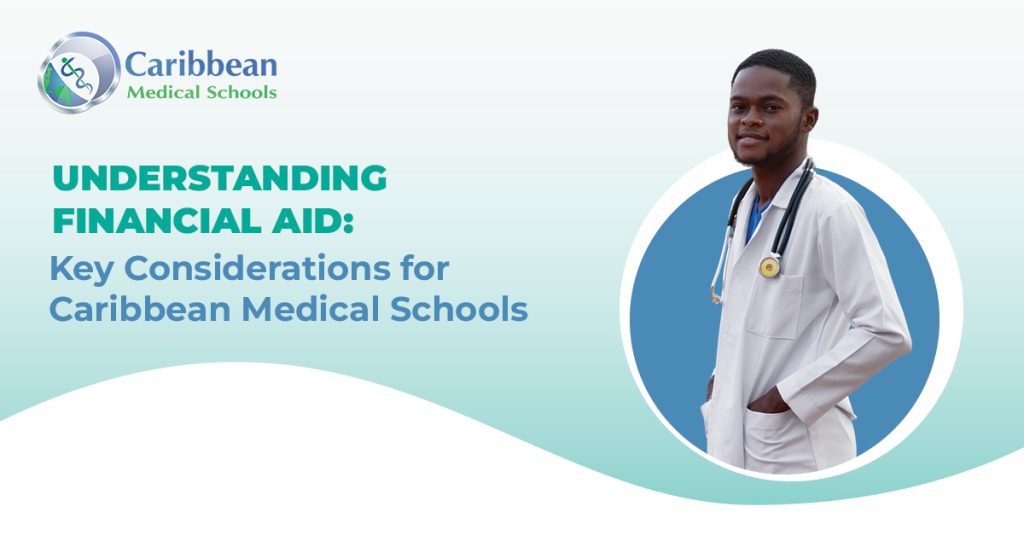Blog Summary
The Caribbean Accreditation Authority for Education in Medicine and Other Health Professions (CAAM-HP) plays a vital role in ensuring quality education for future doctors. This blog explores the significance of CAAM-HP accreditation in guiding students toward successful medical careers. From enhancing curriculum standards to boosting employability, CAAM-HP’s rigorous process guarantees that students are equipped with globally recognized training. Accreditation by CAAM-HP also strengthens opportunities for residency placements and career advancement internationally, positioning graduates for success. Choosing a CAAM-HP accredited institution is a strategic step toward building a reputable, impactful medical career.
Table of Contents
Introduction
Choosing the right medical school is one of the most critical decisions that aspiring doctors face. In a world where healthcare quality is increasingly scrutinized, accreditation plays a significant role in ensuring that medical students receive the education they need to succeed. One of the most respected accrediting bodies for Caribbean medical schools is the Caribbean Accreditation Authority for Education in Medicine and Other Health Professions (CAAM-HP). But how does CAAM-HP accreditation shape your future as a doctor?
In this article, we’ll explore what CAAM-HP accreditation entails, why it’s important for your medical education, and how it impacts your career as a future physician.
What Is CAAM-HP Accreditation?
CAAM-HP, established in 2003, is an independent body that evaluates and accredits medical schools in the Caribbean region. The main goal of CAAM-HP is to ensure that medical institutions meet high standards of education and training, preparing students to practice medicine competently, both regionally and internationally.
The accreditation process is thorough and necessitates a detailed evaluation of an institution’s curriculum, faculty, facilities, and student outcomes. At present, CAAM-HP supervises institutions across the Caribbean, including nations like Jamaica, Trinidad and Tobago, and Barbados, among others.
The Accreditation Process
CAAM-HP accreditation is not a one-time achievement. Medical schools must undergo an extensive review process, which typically includes several steps:
- Self-Evaluation: Schools assess their own programs and facilities.
- Site Visits: CAAM-HP representatives visit the campus to verify the information provided.
- Final Report: Based on their findings, CAAM-HP provides recommendations or approval.
The evaluation criteria focus on areas like curriculum standards, student performance, ethical practices, and the adequacy of physical resources. Reviews are conducted regularly to ensure ongoing compliance.
Why Accreditation Matters for Future Doctors
Why should you care about accreditation? For starters, attending an accredited school ensures you’re receiving a quality education. CAAM-HP accreditation is a stamp of approval that guarantees the school meets global standards.
This, in turn, boosts your employability. Hospitals, clinics, and healthcare organizations are more likely to hire graduates from accredited institutions, knowing they’ve been trained according to stringent guidelines. Patients, too, place greater trust in doctors who have graduated from accredited schools.
Global Recognition of CAAM-HP
One of the key benefits of CAAM-HP accreditation is its international recognition. Schools accredited by CAAM-HP are often recognized by other global accrediting bodies, such as the World Federation for Medical Education (WFME) and the Liaison Committee on Medical Education (LCME). This opens doors for graduates to practice medicine not only in the Caribbean but also in North America, Europe, and beyond.
In fact, some countries have reciprocity agreements with CAAM-HP, meaning they accept its accreditation as valid for licensing and practice.
Impact on Medical School Curriculum
Accreditation also impacts how medical schools structure their curriculum. CAAM-HP sets high standards for course content, clinical exposure, and teaching methods. For further understanding of how these international benchmarks shape medical education, you may want to explore research on global medical curriculum alignment or specific guidelines for USMLE and MCCQE preparation strategies.
This alignment with global standards ensures that students are not just prepared for local practice but can compete on a global stage.
Accreditation and Residency Opportunities
One of the most significant ways CAAM-HP accreditation can shape your future is through residency placements. Medical graduates from accredited schools have better access to residency programs, particularly in the U.S. and Canada. Accreditation is often a requirement for entry into these competitive programs.
For example, many CAAM-HP accredited schools have strong track records of placing students in top residency programs across the U.S. and Canada, giving graduates a head start in their medical careers.
Building a Solid Medical Career
Attending a CAAM-HP accredited institution doesn’t just benefit you in the short term. In the long run, it opens up a wealth of opportunities, from research positions to leadership roles within the healthcare sector. Being a graduate of an accredited program sets a strong foundation for continuous professional development and career advancement.
The Role of Students in Accreditation
While accreditation is primarily the responsibility of the school, students also play an essential role. Student feedback is crucial in maintaining high standards. By providing honest input about the strengths and weaknesses of their program, students help schools improve their quality of education.
Choosing the Right Medical School
Selecting a CAAM-HP accredited school should be a top priority for any aspiring doctor. However, accreditation is just one of many factors to consider. Prospective students should also evaluate the school’s clinical rotations, faculty expertise, and residency placement rates.
Choosing a non-accredited school, on the other hand, can significantly limit your career prospects. Graduates from non-accredited institutions may face challenges in getting licensed or finding residency programs, especially in countries where accreditation is a prerequisite.
Common Misconceptions About CAAM-HP Accreditation
There are several myths surrounding CAAM-HP accreditation. Some believe it only applies to Caribbean students, but this isn’t true. International students can also benefit from attending CAAM-HP accredited schools, especially if they plan to practice medicine in regions that recognize the accreditation.
Future of CAAM-HP and Medical Education
The future looks bright for CAAM-HP as it adjusts to the changing demands of the medical field. With the globalization of medical education, CAAM-HP is expected to take on an increasingly important role in influencing the careers of aspiring physicians.
Conclusion
In conclusion, CAAM-HP accreditation is a vital component of your journey to becoming a doctor. It ensures you receive an excellent education, boosts your career opportunities, and broadens your global prospects. As you start your medical education, selecting a CAAM-HP accredited school could be one of the wisest choices for your future.
FAQs











